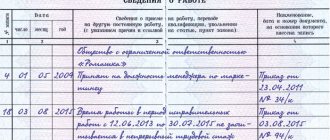Even for drivers of company cars, irregular working hours are established. Therefore, it is necessary to carefully study the question of how interaction is built between subordinates and management.
Usually the latter makes specific decisions about what the additional payment should be to drivers for irregular working hours in a given case. But there are also certain general nuances.
Definition and general information
The term “irregular working hours” is explained in detail in the legislation of the Russian Federation. This is the name given to the special work schedule. In accordance with this schedule, the right to involve employees in additional duties outside of the main time appears. Typically, such rules apply to subordinates, on whom the organization and the result of the technological process greatly depend.
What is an irregular working day for a driver?
The employer himself determines what time is considered additional periods, how much there is in principle. Article 101 of the Labor Code of the Russian Federation reveals this issue in more detail. But the legislation has not yet developed a clear position on the following areas:
- Which positions may or may not be subject to additional working hours.
- The procedure for compiling lists and schedules.
Such issues are resolved by management and stipulated in the collective labor agreement. In labor relations, it is imperative to reflect the consent to irregular work itself, because the specific conditions for a certain situation may differ greatly from generally established indicators.
Large enterprises are trying not to refuse to develop regulations related to irregular working hours. But there are often situations when special working conditions beyond the norm are formalized in the form of an addition to the general work rules.
Positions that allow irregular days include:
- lawyers and consultants;
- drivers;
- senior management of the enterprise.
Additional payment for drivers’ class and its features
Passenger transport drivers Ministry of Emergency Situations transport drivers Passenger transport drivers Forest industry tractor drivers Class 1 25% 25% 25% 50% Class 2 10% 10% 10% 25% A certain level is assigned to a vehicle employee only if he has completed full training and is issued a special certificate , which specifies one or more categories:
- If there is 1st class, the employee can drive vehicles of categories B, C, D, E;
- If there is a 2nd class, the management is provided with transport of categories B, C, E or only D;
- For class 3 they correspond to categories B and C, or only D.
Why are they deprived of the extra payment for class? The level of professionalism assigned to the driver may be lowered or even canceled by management, depending on the situation. The reduction in grade is entered in the work book. However, the vehicle employee can return it to himself.
https://youtu.be/tb6PJSNekWM
Additional payment to drivers for irregular working hours
Overtime work always involves additional compensation. There are certain rules here:
- such specialists, in addition to the main one, are provided with additional paid leave;
- duration of rest time – up to three days or more;
- The company itself decides what time it can provide to whom.
How is a driver paid for irregular working hours?
Specialists from the Federal Employment Service note that there is no need to pay additionally for an irregular schedule. Only additional work time requires additional payment. But this happens if you spend time free from performing your main duties. In this case, the same rules are used as for overtime, that is, overtime.
If the performance of duties requires irregular working hours, then the standard rules apply. This applies to the start of working hours, the schedule for reporting to the workplace, and so on. All issues must be specified in a collective or individual labor agreement.
But the standard procedure does not apply to weekends and holidays. Articles 113 and 153 of the Labor Code come into force if it is during this period that the employee is called to his place. It is recommended to set double the amount of payments for work at such times.
Employees can choose compensation at their own discretion. This could be time off or double pay.
Specialists from employment services do not recommend abusing the opportunity to call employees at non-core hours. If such behavior becomes the norm, the subordinate has the right to contact regulatory organizations to protect his rights.
https://youtu.be/PDo_pYW0fZ8
Driver's working day according to the Labor Code
Several regulations are devoted to the legal regulation of the work of drivers.
The Labor Code devotes an entire chapter to this issue—chapter 51. It contains three articles:
- Article 328 sets out the rules for employment.
- Article 329 regulates the work schedule: the length of the drivers’ working day, breaks, and rest periods. It also says that the specific working conditions of drivers are regulated by the Ministry of Transport.
- Article 330 is devoted to labor discipline of employees associated with transport management.
| Penalties for mistakes in working with drivers are becoming more severe, and there are more and more changes in legislation. We invite you to a seminar where experts will share valuable practical advice and help you better navigate numerous legislative acts. |
Labor regime - Order No. 15
Specific instructions for the formation and observance of the work and rest schedule for drivers are contained in the Regulations, which the Ministry of Transport approved by Order No. 15 of August 20, 2004. This is the main document in practical work with drivers.
The Ministry of Transport periodically makes adjustments to it. Thus, after the additions approved by orders No. 170 of 05/03/2018 and 262 of 08/07/2019, the list of categories of drivers to whom the regulations cannot be applied has expanded. Currently the list of exceptions includes drivers who:
- They work on a rotational shift.
- Carry out international transportation. Drive fire and rescue vehicles.
- Perform evacuations during emergencies.
For all other drivers with whom an employment contract has been concluded, compliance with the regulations of the Ministry of Transport is mandatory. To protect your company from fines, make sure that local regulations comply with current legislation. Pay special attention to:
|
Establishing a schedule, necessary documents
Irregular working hours are not an individual scheme for each employee. It is installed collectively, for a specific group. This process is regulated by internal regulations.
Documentation of irregular working hours
If an internal collective act is drawn up, it must contain the following information:
- The procedure by which working time is taken into account. Some positions require the use of a summary option.
- The number of days of additional leave that are added to the main one. Each category of employees requires an individual approach in this matter.
- Procedure for recruiting to work on weekends.
- A general list of positions for which irregular schedules are acceptable.
Do not forget to indicate the need to comply with the daily routine for all employees, regardless of position. This especially applies to the time of arrival at the workplace and leaving it.
A separate column is provided to familiarize subordinates with the document. When transferring from a regular position to one that provides for an irregular schedule, a separate warning is required.
Drawing up a separate Regulation with a list of positions will not be appropriate if the enterprise has a small staff. It is enough to fix the features of the standard work schedule in a regular employment agreement. If the document is signed, it is considered that all interested parties have read it and do not have any objections.
What's happened?
In general terms, the organization of work for drivers does not differ from the specifics of the work activities of other specialists. The length of the working week of a driver working in a 5-day working week should not exceed 40 hours.
Each day should have no more than 8 hours. If a citizen drives 6 days a week, he must work a maximum of 7 hours every day. All other situations are considered an irregular schedule.
Based on Article 101 of the Labor Code of the Russian Federation, we can conclude that an irregular working day is considered to be a special schedule in which a working citizen can be involved in work outside the working hours established by the employment contract.
During the work of drivers, various circumstances may arise in which an employee has to work irregular hours.
For example, an employer may ask a worker to come to work earlier than the start of the working day.
The opposite situation may also arise - the driver will have to stay late at work.
In such cases, the driver is considered to work on an irregular schedule.
The employer is obliged to comply with all requirements established for non-standard working conditions.
Violation of workers' rights can threaten enterprise management with problems.
In this case, employees of inspection bodies - the Labor Inspectorate, the prosecutor's office, etc. - can hold management accountable.
Who can set such a work schedule?
Can it be installed for drivers driving a truck or car?
In practice, irregular work hours for drivers are quite common. Especially when it comes to personal chauffeurs.
Employers attract such employees to work outside of working hours quite often, forgetting that such a schedule cannot be established on a systematic level.
If necessary, the employer may establish the possibility for the driver to be involved in such work. In order to avoid problems with higher authorities, it is important to follow certain rules established in relation to this issue.
It is equally important to consider that the previously mentioned operating mode cannot be established in relation to all drivers.
Before engaging an employee in such work, the head of the company must carefully study the regulatory labor documentation in force in the Russian Federation.
How to cancel irregular working hours?
For what categories is driving possible?
It was previously stated that not every driver can have an irregular day. It should also be noted that the Labor Code of the Russian Federation does not contain a specific list of classifications of workers who cannot work in this way.
Article 329 of the Labor Code of the Russian Federation states that workers whose professional activities involve direct interaction with vehicles are subject to the rules and requirements of the Ministry of Transport of the Russian Federation.
In particular, paragraph 14 of the Regulations of this body reflects that an irregular day can be established in relation to the following specialists:
- drivers operating passenger vehicles;
- drivers working on expedition vehicles. Work in this category involves topographic-geodetic, survey and geological exploration work.
There is an exception to the first point. These are taxi drivers.
For them, the employer does not have the right to establish irregular working hours. A similar rule applies to truck drivers.
They, like taxi drivers, cannot be attracted by management to work on an irregular schedule.
Two articles of the Labor Code - and , indicate that drivers for whom a reduced working day is established, or whose working time is limited to a shift, are not recommended to establish an irregular working day.
Any employee can work on an irregular schedule only periodically. Constantly engaging in such work is a violation of the law.
Is there an additional payment or allowance?
It is known that when working on an irregular schedule, the manager has the right not to pay additional money to workers, that is, additional payment. How is irregular work paid?
His responsibilities include providing additional days off, which can be added to the employee’s vacation.
Exceptions are weekends and holidays.
When working on a day off, an employee has the right to demand from the employer not time off, but payment. In other cases, the manager decides independently whether to pay the driver extra or not.
The technology for calculating surcharges (if any) should be fixed at the internal level. The employer can set an additional payment to employees, expressed as a fixed amount or a percentage, for example, of the driver’s salary.
Providing compensation for abnormal working conditions.
conclusions
Drivers, on a general basis, can be involved in irregular work, if such is provided for in the company’s internal documentation.
It is important to consider that not every employee can be involved in such work.
Irregular working hours cannot be established for taxi drivers and truck drivers.
It should also be remembered that the manager can only involve you in work on an irregular schedule if absolutely necessary. This cannot be done systematically.
7 Moscow — CALL
7 St. Petersburg — CALL
8 ext.849 – Other regions – CALL
“EZh Question-Answer”, 2008, N 12 Question: The driver of a company car has an irregular working day. Previously, an additional payment was made for irregular working hours - 25% of the salary and additional leave was provided for irregular working hours - 14 calendar days.
Before moving on to discussing the legality of depriving the driver of additional payment, let us recall: the driver’s profession is associated with driving vehicles and, therefore, with road safety.
For this reason, the legislator in Art. 329 of the Labor Code of the Russian Federation provided for the establishment of specific working conditions for workers whose work is directly related to the movement of vehicles. Such features are established in Chap.
51 of the Labor Code of the Russian Federation, Regulations on the peculiarities of working hours and rest time for car drivers, approved by Order of the Ministry of Transport of Russia dated August 20, 2004 N 15 (hereinafter referred to as the Regulations). The above documents are mandatory for use by all organizations, regardless of organizational and legal forms and forms of ownership, that have drivers on staff.
For motor transport organizations, the Intersectoral Rules on Labor Safety in Motor Transport, approved by Resolution of the Ministry of Social Development of Russia dated May 12, 2003 N 28, are mandatory. The employer is obliged to draw up monthly shift schedules for all drivers for each day or shift (clause 3 of the Regulations).
The schedule is the basis for maintaining daily or summarized working time records. The number and duration of work shifts according to shift schedules for irregular working hours are established based on the normal length of the working week, and weekly rest days are provided on a general basis. Note!
We invite you to read: How to pay the state duty at Sberbank. How to pay state duty to Sberbank online. Payment of duties through the Sberbank terminal
The regulation on drivers does not apply to motor transport workers engaged in international transportation, as well as those working as part of teams in a rotational work organization. The shift schedule must indicate the start and end times of work, as well as the duration of daily work (shift), breaks for rest and food, daily (between shifts) and weekly rest.
When drawing up the schedule, the employer is obliged to take into account the opinion of the representative body of employees. According to clause 6 of the Regulations, the driver must perform his job duties during the shift in accordance with the terms of the employment contract, internal rules and work schedule.
However, the normal duration of his working hours cannot exceed 40 hours per week. If a driver works on a five-day work week with two days off, his shift should not exceed 8 hours.
With a six-day work week with one day off, the shift is limited to 7 hours (clause 7 of the Regulations). The period of direct driving cannot exceed 9 hours (clause 16 of the Regulations). All features related to working time and rest time not provided for by the Regulations are regulated by the Labor Code of the Russian Federation (clause 2 of the Regulations).
Drivers of passenger cars, in accordance with clause 14 of the Regulations, may have an irregular working day. Let us recall that this is a special work regime, according to which individual employees may, by order of the employer, if necessary, be occasionally involved in the performance of their labor functions outside the working hours established for them (Article 101 of the Labor Code of the Russian Federation).
overtime work is work performed by an employee at the initiative of the employer outside the working hours established for the employee: daily work (shift), and in the case of cumulative accounting of working hours - in excess of the normal number of working hours for the accounting period.
It should also be borne in mind that the involvement of employees in work beyond the established working hours should not be systematic, but occur from time to time (episodic).
The stated conclusion is confirmed by the position of the Federal Service for Labor and Employment, set out in Letter No. 1316-6-1 dated 06/07/2008. Overtime work should not exceed 4 hours for each driver for two days in a row and 120 hours per year (Article 99 of the Labor Code of the Russian Federation, clause
23 Regulations). Only within the specified time limits the employer has the right to attract a driver to perform his duties. Note! One of the cases when an employment contract, in particular the terms of remuneration, can be changed unilaterally is a change in the organizational or technological working conditions in the organization (Article 74 of the Labor Code of the Russian Federation).
In this case, the terms of the employment contract may be changed at the initiative of the employer, with the exception of changes in the employee’s labor function. The employer is obliged to notify the employee in writing about upcoming changes, as well as the reasons for such changes, no later than 2 months in advance.
Unlike the previous version of Art. 119 of the Labor Code of the Russian Federation, in force until August 10, 2008 and amended by Federal Law No. 90-FZ of June 30, 2006, the new edition of this article excludes the provision that if the employer does not provide additional leave, overtime in excess of normal working hours with the written consent of the employee is compensated as overtime work.
Thus, the rule on payment of overtime work when additional leave was not provided was in force until August 10, 2008. Currently, the Labor Code of the Russian Federation does not recognize overtime during irregular working hours as overtime work, for which guarantees of additional payment must be observed.
For work on irregular working hours, the Labor Code of the Russian Federation established compensation only in the form of additional leave, the duration of which is determined by a collective agreement or internal labor regulations and cannot be less than three calendar days.
In this case, the Labor Code of the Russian Federation does not provide for monetary compensation. Thus, the employer is not obliged to pay overtime to a driver working on irregular working hours.
This does not mean that the employer is not subject to the general rules of the Labor Code of the Russian Federation, which determine the conditions for changing and terminating the contract. In accordance with Art. 72 of the Labor Code of the Russian Federation, changes in the terms of the employment contract determined by the parties are allowed only by agreement of the parties to the employment contract, with the exception of cases provided for by the Labor Code of the Russian Federation.
An agreement to change the terms of an employment contract determined by the parties is concluded in writing. If an employment contract with a driver contains a condition on additional payment to the driver for work under irregular working hours or for being hired to work overtime, the employer does not have the right to unilaterally change such condition unless there are grounds provided for by the Labor Code of the Russian Federation.
In this case, the accounting department is obliged to pay the amounts stipulated by the employment contract, despite the additional leave established for such an employee. If additional payment for persons working on irregular working hours is provided only in the local act of the organization, then the employer has the right to change (cancel) it by issuing an appropriate order (on amending the local act) in the manner prescribed by Art. Art.
8 and 372 of the Labor Code of the Russian Federation (taking into account the opinion of the representative body of workers, if there is one in the organization). After the order comes into force, canceled additional payments are not paid. D. Prokopyeva Lawyer A. Tyurina Expert "EZh" Signed for printing 01/12/2009
Work and rest schedule for drivers
Provisions).Only within the specified time limits, the employer has the right to attract a driver to perform his duties. Note! One of the cases when an employment contract, in particular the terms of remuneration, can be changed unilaterally is a change in the organizational or technological working conditions in the organization (Article 74 of the Labor Code of the Russian Federation). In this case, the terms of the employment contract may be changed at the initiative of the employer, with the exception of changes in the employee’s labor function. The employer is obliged to notify the employee in writing about upcoming changes, as well as the reasons for such changes, no later than 2 months in advance. Unlike the previous version of Art. 119 of the Labor Code of the Russian Federation, in force until August 10, 2008.
Is it necessary to develop regulations at the enterprise?
An irregular day is a special work schedule that can be established for a specific employee or group of workers.
Documentation of this process is mandatory.
In most cases, a collective agreement is developed. It reflects the following information:
- attraction technology;
- the procedure for granting additional days off;
- a list of persons or positions covered by this agreement;
- signatures of responsible persons.
The document drawn up must be signed by the employee who, if necessary, will work such a work schedule.
If the employer wishes, a special provision can be developed regarding irregular working hours for drivers.
It should be noted that this is not a mandatory point.
An irregular schedule may be established by another document.
Collective agreement is the best option. The presence of the drivers’ signature in it indicates their agreement with the conditions stated in it.
The conditions of irregular work can be specified in the employment contract - how to state it.
The procedure for establishing an irregular mode - step-by-step instructions.









